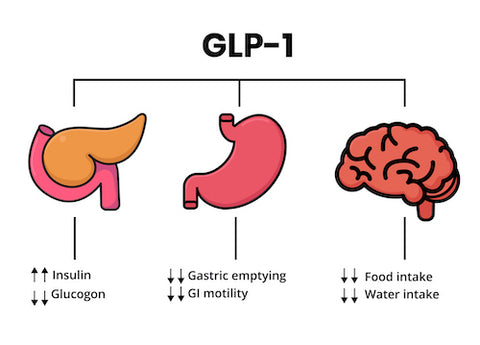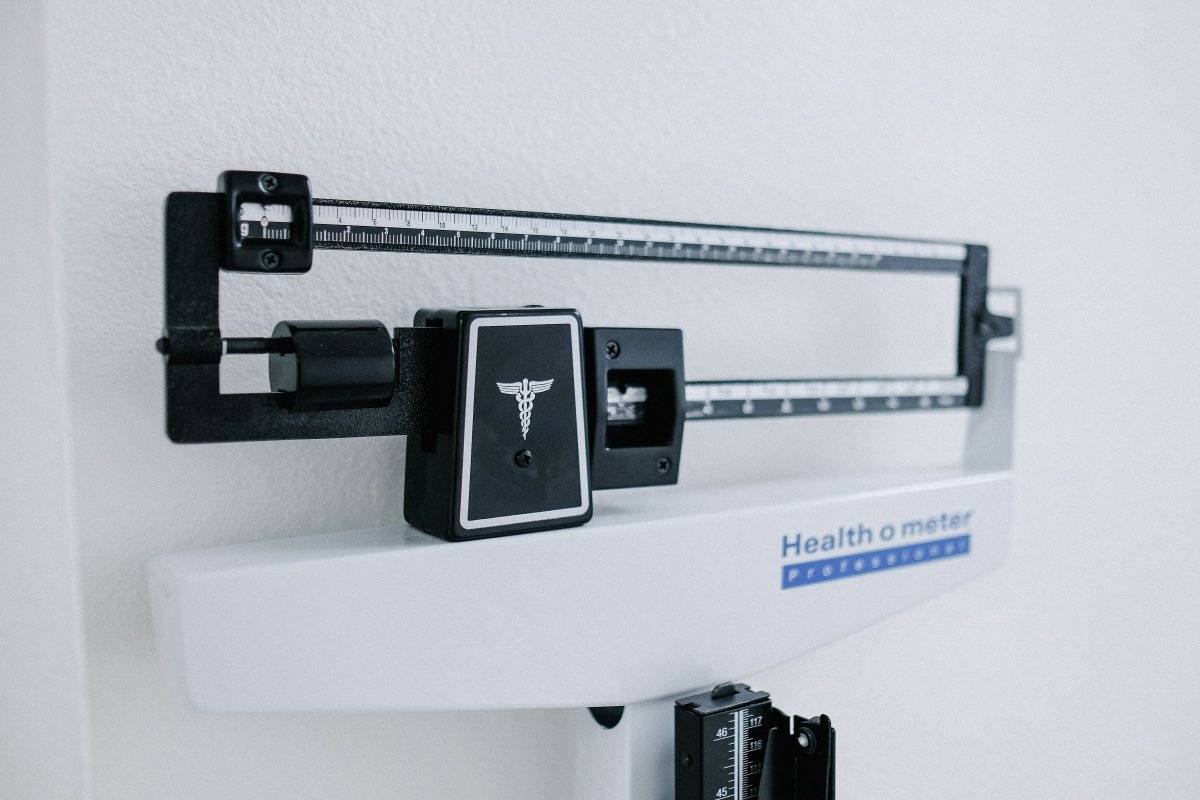Discover the Keys to Weight Loss and Tackle Your Semaglutide Related Questions
Welcome to our weight loss blog at Rightangled! Today, we delve into an exciting breakthrough in the world of weight management - Semaglutide. We'll explore how Semaglutide works for weight loss, the latest research in the field, managing common side effects, the psychology of weight loss, and lifestyle factors that can boost your weight loss journey.
How Does Semaglutide Work for Weight Loss?
Semaglutide is a groundbreaking medication originally developed to treat type 2 diabetes. However, in recent years, it has shown remarkable potential in aiding weight loss efforts. This injectable drug belongs to the class of GLP-1 receptor agonists, which mimic the action of the natural hormone GLP-1.
When taken for weight loss, Semaglutide works by suppressing appetite and reducing food intake. It regulates blood sugar levels, improves insulin sensitivity, and promotes the feeling of fullness after meals, leading to reduced calorie consumption. Moreover, it slows down gastric emptying, making you feel satisfied for longer periods, which can ultimately help you stay on track with your weight loss goals.

Latest Research for Weight Loss
The scientific community is constantly studying the effects of Semaglutide on weight loss, and the results have been nothing short of impressive. Clinical trials have demonstrated significant weight loss in participants using Semaglutide compared to those on a placebo. Some studies have even reported an average weight loss of up to 15% over a year!
These findings are revolutionary, and they offer hope for individuals struggling with obesity or difficulty losing weight through traditional methods alone. However, it's essential to remember that Semaglutide should be used as part of a comprehensive weight loss plan that includes a balanced diet, exercise, and lifestyle changes.
Managing Common Side Effects of Semaglutide
Like any medication, Semaglutide may have side effects. The most common ones reported during clinical trials include mild to moderate nausea, diarrhea, and constipation. These side effects tend to subside as your body adjusts to the medication. However, if they persist or become bothersome, it's essential to speak with your healthcare provider.
Remember, the benefits of Semaglutide in weight loss may far outweigh these manageable side effects, but it's essential to discuss any concerns with your doctor to ensure this treatment is right for you.
The Psychology of Weight Loss
Weight loss is not just about diet and exercise; it's also about understanding the psychological aspects of the journey. Many individuals struggle with emotional eating, stress-related overeating, or developing unhealthy relationships with food. Recognizing and addressing these psychological factors is crucial for sustainable weight loss.
- Emotional Factors: Stress, boredom, and negative emotions can contribute to weight gain by triggering overeating or comfort eating. Emotional factors may lead to using food as a source of comfort or distraction from negative feelings.
- Environmental Cues: The physical and social environment can influence eating behaviours and contribute to weight gain. Access to high-calorie foods, large portion sizes, and social pressures to indulge can make it challenging to maintain a healthy diet.
- Reward and Pleasure: Food can be associated with reward and pleasure, leading to overconsumption. Neurotransmitters like dopamine play a role in the brain's reward system, which can create a cycle of seeking food for pleasure rather than for sustenance.
- Mindless Eating: Engaging in distracted eating, such as eating while watching TV or working, can lead to overeating as individuals become disconnected from their body's natural hunger and fullness cues.
- Learned Behaviours: Past experiences and learned behaviours around food can influence eating habits and weight gain. Family, cultural, and societal influences play a role in shaping attitudes toward food and body image.
It's important to note that individual experiences and psychological factors can vary, and the psychology of weight loss and weight gain is multifaceted. Seeking support from healthcare professionals, such as registered dietitians or therapists specialising in eating disorders, can be beneficial for developing a personalised approach to weight management.
Lifestyle Factors for Weight Loss
While Semaglutide can be an effective tool for weight loss, it's vital to complement it with lifestyle changes that promote overall well-being. Here are some lifestyle factors to consider:
- Regular Exercise: Incorporate physical activity into your daily routine. Whether it's brisk walking, jogging, dancing, or yoga, find activities you enjoy to stay motivated.
- Balanced Diet: Focus on a diet rich in fruits, vegetables, lean proteins, and whole grains. Avoid excessive consumption of processed foods, sugary beverages, and high-calorie snacks.
- Hydration: Drink plenty of water throughout the day to stay hydrated and support your body's metabolic processes.
- Adequate Sleep: Aim for 7-9 hours of quality sleep per night. Lack of sleep can disrupt hormones related to hunger and satiety, potentially leading to overeating.
- Stress Management: Find healthy ways to manage stress, such as meditation, deep breathing exercises, or engaging in hobbies you enjoy.
- Social Support: Surround yourself with a supportive network of friends, family, or weight loss groups. Having encouragement and accountability can make a significant difference in your journey.
Remember, weight loss is a gradual process, and every individual's journey is unique. Be patient with yourself, celebrate small victories, and stay committed to your goals.
What to do if Semaglutide is unavailable or my dose is unavailable?
As you may already know, Semaglutide has been a game-changer in the field of weight management, but sometimes, availability issues may arise. Don't worry; we have some valuable insights to share to help you navigate this situation.
Novo Nordisk - Industry Insight - Capacity
Novo Nordisk, the pharmaceutical company behind Semaglutide (also known as Ozempic), has been at the forefront of innovation in diabetes and obesity treatments. As demand for Semaglutide increases, there might be times when its availability becomes limited due to production capacity challenges or other factors. It's crucial to stay informed through official channels and speak to your healthcare provider about alternative options during such periods.
If Happy with Results on 0.25mg, Then Stay on It - If You Want to Escalate, Redo Consult with Prescriber to Up Titrate
If you're already experiencing positive results with the 0.25mg dose of Semaglutide, there's no need to rush to escalate your dosage. Remember, weight loss is a gradual process, and sticking to a lower dose might be just as effective for you. However, if you feel the need to increase the dosage, it's essential to consult your prescriber before making any changes. They can evaluate your progress and advise on the appropriate up titration if necessary.
Super Responders Don’t Need to Increase Dose at All
Every individual responds differently to medications, and some may find that they achieve significant weight loss even with the initial 0.25mg dose. If you fall into the category of "super responders," congratulations! There's no need to increase the dose if you're already achieving your weight loss goals.
0.5mg is the Therapeutic Dose to Achieve Results
For many individuals, the 0.5mg dose of Semaglutide has proven to be the therapeutic dose needed to achieve substantial weight loss. This dosage has been extensively studied and found to be effective in clinical trials. So, if you and your prescriber decide that an escalation is necessary, this is the dosage that has shown promising results.
Diet and Lifestyle: A Big Part of Weight Loss
While Semaglutide can be a powerful tool in your weight loss journey, it's crucial to remember that diet and lifestyle play an integral role as well. A balanced diet, regular exercise, adequate sleep, and stress management are all essential components of a successful weight loss plan. Embrace a holistic approach to your health and well-being for long-lasting results.
In a Trial, Adults Lost 8 Pounds on 0.5mg Ozempic vs. 10 Pounds on 1mg Ozempic in 6 Months
Clinical trials have provided valuable insights into Semaglutide's efficacy for weight loss. Interestingly, in one study, adults lost an average of 8 pounds while on the 0.5mg Ozempic dose, compared to 10 pounds on the 1mg Ozempic dose over a six-month period. This data suggests that the 0.5mg dose can be just as effective as the higher dose for some individuals.
Higher Doses Can Cause More Side Effect Risk
It's important to be mindful of potential side effects when considering dosage escalation. Higher doses may increase the likelihood of experiencing certain side effects associated with Semaglutide. Always discuss your concerns and any side effects with your healthcare provider to find the best dosage for you.
Stopping for 2 Months or longer - Will Need to Reinitiate from 0.25mg - Not a System Glitch
If, for any reason, you need to stop taking Semaglutide for more than two months, you'll need to reinitiate the treatment starting from the 0.25mg dose. This is not a system glitch; it's a necessary precaution to ensure your safety and efficacy when restarting the medication.
Remain on 0.25mg If Out of Stock, As Then Don’t Need to Reinitiate
If you find that Semaglutide is temporarily out of stock, and you are already on the 0.25mg dose or a higher dose, it's best to remain on that dose or take the 0.25mg dose until the supply is available again. Staying on the 0.25mg dose ensures that you don't need to reinitiate the treatment, avoiding potential disruptions in your weight loss progress. This is because the medication is still in your system so it can be safely increased once available again. Otherwise we would need to restart the whole process and up titrate over months.
Conclusion
Semaglutide offers a promising option for those struggling with weight loss. Its ability to reduce appetite and improve weight management is a significant step forward in the fight against obesity. However, it's essential to use Semaglutide as part of a comprehensive weight loss plan that includes lifestyle changes and addresses the psychological aspects of weight management.
Written by Dr Sohaib Imtiaz, Rightangled's Clinical Lead a Board Certified Lifestyle Medicine Doctor and Digital Health expert.





Share:
Is a Low-Carb diet safe for you?
Dietary Guidelines for Weight-Loss Medication Users